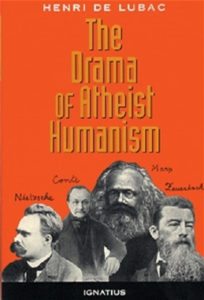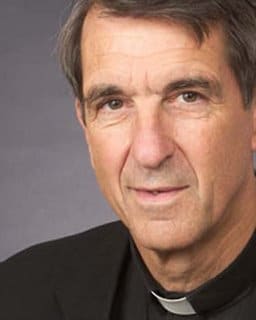Podcast: Play in new window | Download (Duration: 33:52 — 23.7MB) | Embed
Subscribe: Apple Podcasts | Spotify | Amazon Music | Android | Pandora | iHeartRadio | JioSaavn | Podchaser | Gaana | Podcast Index | Email | TuneIn | Deezer | Anghami | RSS | More
Dostoyevsky knows the difference between a revolution of love (Christian) and a revolution of power (atheism). Fr. Fessio, Joseph Pearce, and Vivian Dudro continue to read Henri de Lubac’s analysis of the great Fyodor Dostoyevsky in “The Drama of Atheist Humanism.”
 You can find the book here
You can find the book here
De Lubac traces the origin of 19th century attempts to construct a humanism apart from God, the sources of contemporary atheism which purports to have “moved beyond God.” The three persons he focuses on are Feuerbach, who greatly influenced Marx; Nietzsche, who represents nihilism; and Comte, who is the father of all forms of positivism.
He then shows that the only one who really responded to this ideology was Dostoevsky, a kind of prophet who criticizes in his novels this attempt to have a society without God. Despite their historical and scholarly appearance, de Lubac’s work clearly refers to the present.
As he investigates the sources of modern atheism, particularly in its claim to have definitely moved beyond the idea of God, he is thinking of an ideology prevalent today in East and West which regards the Christian faith as a completely outdated.





